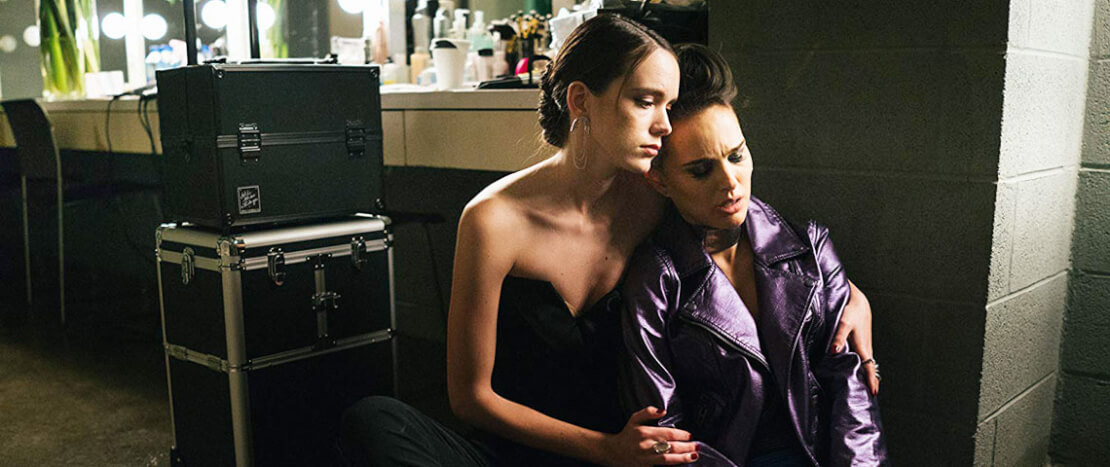Vox Lux
After a horrific high school shooting, teenager Celeste Montgomery (Raffey Cassidy) goes onto the have a surprise pop career when a song penned by her and her sister becomes a huge hit. An anthem for pain, it will later go on to define her life, as years later she ricochets off her increasing need for celebrity.
… wants you to stop what you are doing and lean into its psycho babble.
Director Brady Corbet’s pop opera ‘Vox Lux’ is urgent. It wants to be heard. It wants you to stop what you are doing and lean into its psycho babble. However like its central character, its artifice and desire unwind very quickly in front of your eyes.
Caught in shades of Darren Aronofksy’s ’Requiem for a Dream’, ‘Vox Lux’ is a pop star ascension where its star arrives stillborn. So desperate to be vital, the film’s opening shot starts with its own closing credits. If that first pretentious warning shot didn’t hit you, the second one finds its mark with Willem Dafoe’s narration filling in each character’s growth so that the filmmakers don’t have to.
Leaning increasingly heavily on Dafoe’s narrated insertions, ‘Vox Lux’ first act succeeds in being the most arresting of the three. Charting Celeste’s recovery from post-shooting hospitalisation, actress Raffey Cassidy does a solid job as a school girl thrown into sudden notoriety. Then Jude Law gets to appear as a permanently jaded music manager, whose demands are rarely allowed to shift from gruff to gracious. However it’s when Natalie Portman finally arrives, that the plot, together with Cassidy’s more carefully constructed character, gets loudly tossed aside.
Sporting a New York accent that can strip paint at a thousand yards, Natalie Portman is now an older Celeste, with many more years travelled behind her. Inflecting oral damage upon anybody around her, like a megaphone with its switch taped down, Portman pouts and preens her way through an increasing sense of disbelief. Reeling off a variety of mommy-is-also-an-insecure-bitch attitudes, the contrast couldn’t to be more different to Cassidy’s earlier, more markedly nuanced Celeste.
However, here to smooth away all the logic bumps is Willem Dafoe’s narration once again.
Recounting several other off-screen traumas that occurred between Acts I and II, Dafoe unwittingly becomes a dual apologist. Apologising for Portman’s jarring performance, he also apologises for Celeste’s daughter, Albertine (who is also played by Raffey Cassidy, having already played the younger Celeste in the first act). Maybe the disorientation here is an intentional one, but laced with further tracts of even more insufferable dialogue, (many of which deserved to kiss the cutting room floor) it quickly emerges there wouldn’t be much else for Portman’s character to do, had they fallen that way.
So, finally whining its way down towards its heavily foreshadowed spiral, Natalie Portman’s black swan jumps over the plot with a final, directionless concert performance. Ultimately content to misfire than rather hit any kind of target, ‘Vox Lux’ closes as a movie seething with injustice over the very adulation Celeste now covets.
Easily more enjoyable as a radio play, try shutting your eyes during Sia’s songs and Portman’s more bitchy interludes. Don’t worry about the visuals. You won’t miss a thing. Willem Dafoe’s narration will tell you about the movie Brady Corbet should have made in the first place.
Vox… Redux.













